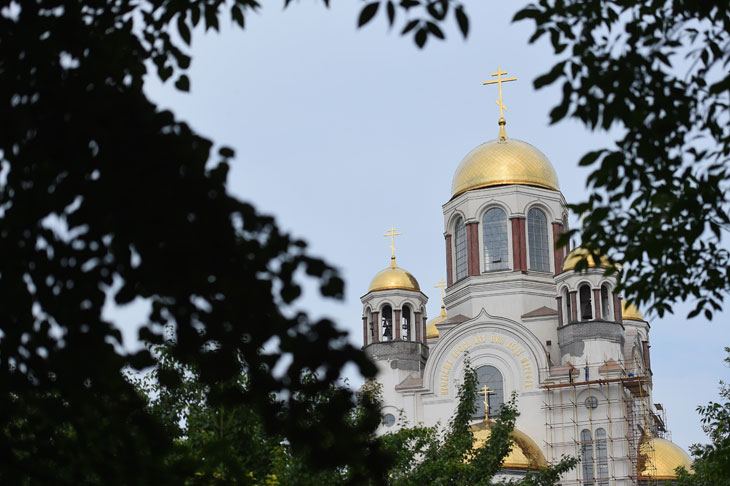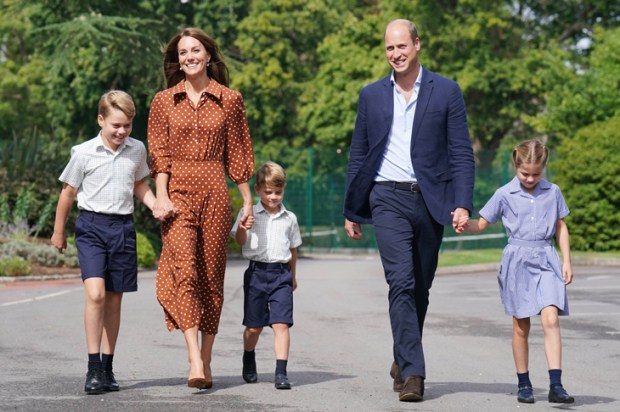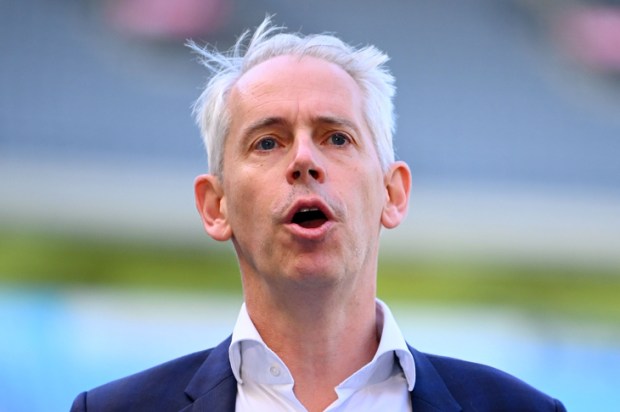Once again, Western civilisation is under mortal threat. This time it comes from a deepening schism between the rank-and-file and a cosmopolitan urban elite who have turned away from the source of all their wealth: free enterprise and private property under a constitutional, sovereign state, grounded on traditional civil society.
Identifying this in his forthcoming tour de force, Sovereignty, the prolific Washington-based strategist who has advised leaders around the world for almost a half century, Gregory Copley, sounds a warning. This is that rather than the nation-state, today’s elites endorse a world without borders, one governed by an unelected international bureaucracy. Their role is to enforce increasingly unacceptable laws which overturn traditional society, undermine the free enterprise system and diminish the living standards of an increasingly rebellious rank-and-file.
It is one hundred years since Western civilisation was under another threat which almost led to its overthrow.
This began, inexplicably, with the 1914 assassination at Sarajevo of Archduke Franz Ferdinand and his wife, Sophie, Duchess of Hohenberg.
This led through war and insurrection to the lowest point, the massacre of the Russian Imperial Family on 17 July 1918 at Yekaterinburg by those whose mission was and still is to destroy civilisation. On that evening of infamy, Tsar Nicholas II, Tsarina Alexandra and their beautiful children, the Grand Duchesses Olga, Tatiana, Maria, Anastasia, and the young Tsarevitch Alexei, tragically afflicted by hemophilia, as well as their supporters, were shot, bayoneted and clubbed to death.
Their bodies were then disfigured and buried in a hidden grave, all on the secret orders of that evil, bloodthirsty tyrant, Vladimir Ilyich Lenin.
As Russian President, Boris Yeltsin, declared as the Imperial remains were at last buried in St Petersburg’s great St Peter and St Paul Fortress, this was one of the ‘most shameful episodes’ in Russian history. Bowing his head before the victims of this ‘merciless slaying’, he affirmed that the interment was a symbol of unity of the nation and also an act of atonement by those involved directly and indirectly for ‘their common guilt’.
Not only does Yekaterinburg recall this bloody massacre, it also recalls the high crime committed by the German High Command in injecting into the very heart of the Russian Empire and then the world, what Churchill accurately described as a ‘bacillus plague’, a bacillus plague which was also to mutate into National Socialism, that is Nazism.
This infection spread so quickly and so remarkably that by 1940, acting together, they had replaced almost all constitutional government in continental Europe with a barbaric rule from the Dark Ages.
With the world wars, this plague would result in the deaths of around 200 million, many more casualties and the enslavement of a series of nations across a vast part of the world under the most brutal of dictatorships.
Had the 1914-1918 war been as limited and as short as most had expected, something which could easily have occurred, it is likely the European powers would have recovered and continued as they were, without producing the calamities that have shaken the world.
It is also likely that they would have evolved into societies operating under an advanced constitutional order similar to Britain’s. This is after all, the only constitutional model to be exported successfully, working well over an extended period of time and under the pressures of war and economic depression.
In any event, by 1914 both the German Reich and the Austro-Hungarian Empire were well on the way to developing towards something akin to the advanced British constitutional model.
Tsarist Russia was not so advanced, but it was a far better society than the horror which was to be subsequently imposed by those monsters Lenin and Stalin.
On this Sarejevo had not only catapulted Europe into a general then world war. It had also brought all constitutional development in Russia to a sudden end.
So how did the Tsarist system compare with the subsequent Soviet regime? Was the USSR, at least economically, as we are told, superior to Tsarism?
There is no question that the Russian economy industrialised with extraordinary speed in the three decades before 1914, with economic development faster than that even in the up-and-coming challenger to Britain, Germany.
KGB Colonel Oleg Gordievsky once headed the KGB’s rezidentura in London, but, becoming disillusioned, he defected in 1985. He is undoubtedly one of the highest-ranking and most valuable of Soviet era defectors.
‘Russia under Nicholas II, with all the survivals of feudalism,’ he writes, ‘had opposition political parties, independent trade unions and newspapers, a rather radical parliament and a modern legal system. Its agriculture was on the level of the USA, with industry rapidly approaching the Western European level.’
‘[In contrast] in the USSR there was total tyranny, no political liberties and practically no human rights. Its economy was not viable; agriculture was destroyed. The terror against the population reached a scope unprecedented in history.’
‘No wonder many Russians look back at Tsarist Russia as a paradise lost.’
It could have been so different, even as late as 1917 and even with such a long world war.
When Tsar Nicholas II abdicated in favour of his brother Michael Alexandrovich, the new Tsar declared that he would assume supreme power only if the people invested him with this through an elected Constituent Assembly. But when the assembly met in January 1918, the Bolsheviks, unwisely armed by the Kerensky provisional government, closed them down. In the last free vote they allowed in Russia, the Bolsheviks attracted less than 25 per cent of the vote. When Alexander Kerensky died in New York in 1970, not one Orthodox church, Russian or Serbian, would bury him.
Had Tsar Michael II been invested by the people, there can be no doubt Russia would have become a constitutional monarchy. Fearing such a democratic result, the communists murdered him.
Had Tsar Michael II reigned, Russia would never have known that long and evil dark age under those communist tyrants.
Got something to add? Join the discussion and comment below.
Get 10 issues for just $10
Subscribe to The Spectator Australia today for the next 10 magazine issues, plus full online access, for just $10.
You might disagree with half of it, but you’ll enjoy reading all of it. Try your first month for free, then just $2 a week for the remainder of your first year.














Comments
Don't miss out
Join the conversation with other Spectator Australia readers. Subscribe to leave a comment.
SUBSCRIBEAlready a subscriber? Log in